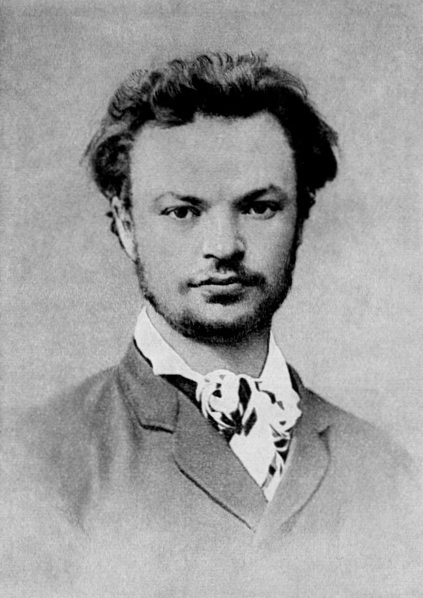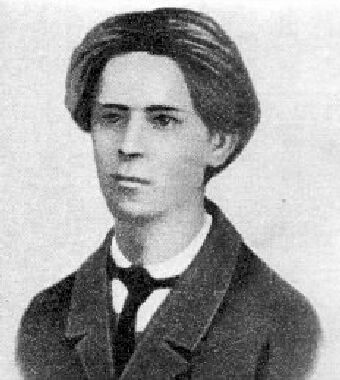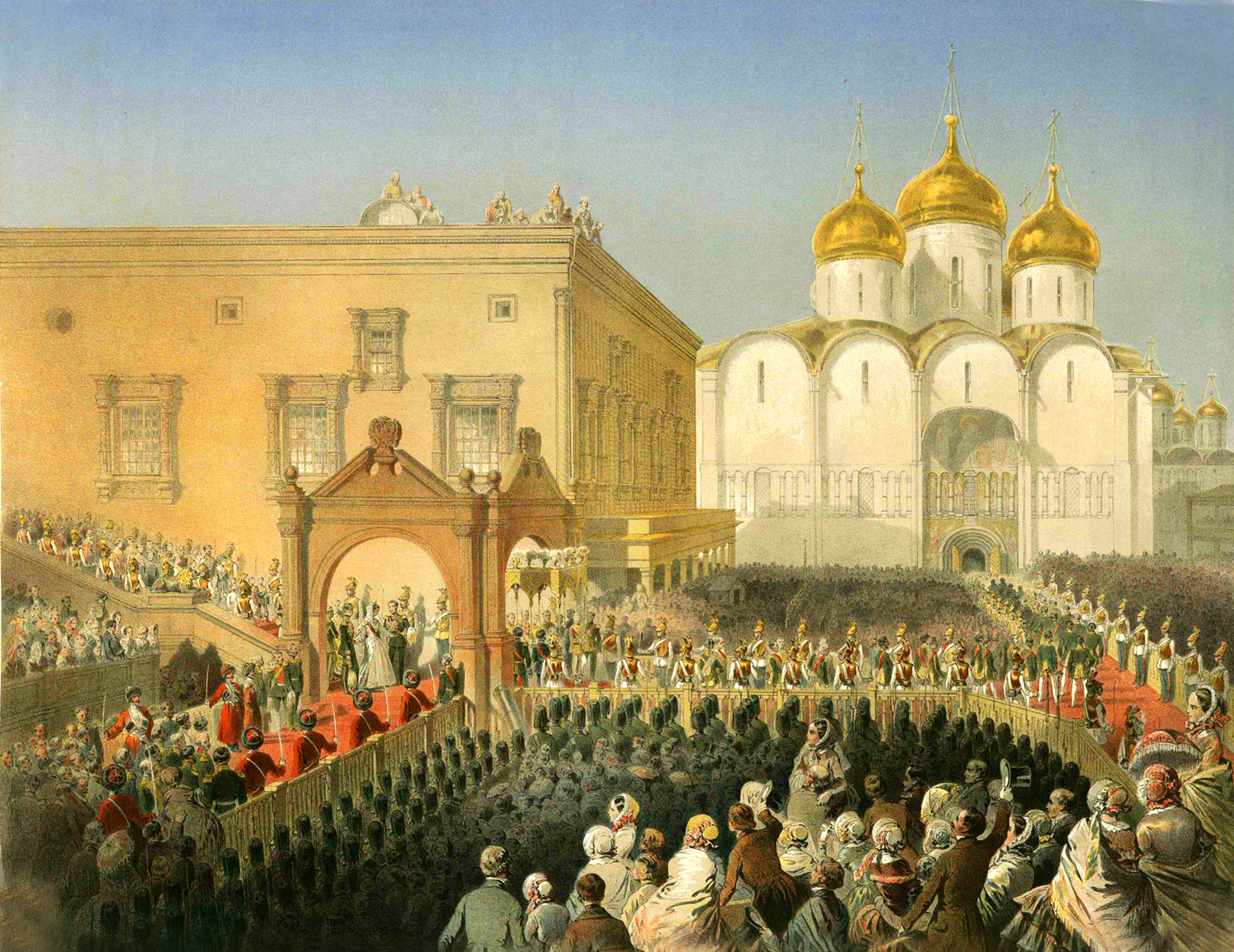|
Olga Liubatovich
Olga Spiridonovna Lyubatovich (; 1854–1917) was a Russian revolutionary and member of Narodnaya Volya. Biography Early life Lyubatovich was the daughter of an engineer and a political refugee from Montenegro, born in 1854. Her maternal grandfather owned a goldmine, and her mother, who died when Olga was in her teens, had "a level of culture rare for those times: she had studied in the best French boarding school in Moscow and spent time in the company of writers.". She wanted to study medicine in order to become a doctor, which was impossible for a woman to do in Russia. For this reason she went to study in Zürich with Sophia Bardina, her sister Vera in 1871. Revolutionary life In Zurich, both Lyubatovich sisters joined the 'Fritsche circle', a group of nine or ten young feminists whose leading figures were Sophia Bardina and Vera Figner. They joined a group of Georgian students to form the 'Pan- Russian Social Revolutionary Organisation'. In 1875, she returned to Russia ... [...More Info...] [...Related Items...] OR: [Wikipedia] [Google] [Baidu] |
Russia
Russia, or the Russian Federation, is a country spanning Eastern Europe and North Asia. It is the list of countries and dependencies by area, largest country in the world, and extends across Time in Russia, eleven time zones, sharing Borders of Russia, land borders with fourteen countries. Russia is the List of European countries by population, most populous country in Europe and the List of countries and dependencies by population, ninth-most populous country in the world. It is a Urbanization by sovereign state, highly urbanised country, with sixteen of its urban areas having more than 1 million inhabitants. Moscow, the List of metropolitan areas in Europe, most populous metropolitan area in Europe, is the capital and List of cities and towns in Russia by population, largest city of Russia, while Saint Petersburg is its second-largest city and Society and culture in Saint Petersburg, cultural centre. Human settlement on the territory of modern Russia dates back to the ... [...More Info...] [...Related Items...] OR: [Wikipedia] [Google] [Baidu] |
Sergey Kravchinsky
Sergey Mikhaylovich Stepnyak-Kravchinsky (; 13 July 1851 – 23 December 1895), known in 19th-century London revolutionary circles as Sergius Stepniak, was a Russian revolutionary. He is mainly known for assassinating General Nikolai Mezentsov, chief of Russia's Gendarme corps and head of secret police, with a dagger in the streets of St. Petersburg in 1878. Early life Stepniak, the son of an army doctor and a noblewoman, was born on in Novy Starodub, Aleksandriya uezd, Kherson Governorate, Russian Empire (now in Ukraine). He received a liberal education, and when he left school, he went on to attend the Military academy and graduated from the Mikhailovsky Artillery Institute before joining the Imperial Russian Army. He reached the rank of second lieutenant before resigning his commission in 1871. Revolutionary life His sympathy lay with the peasants, among whom he had lived during his boyhood in the country, which led him to develop democratic, and later revolutiona ... [...More Info...] [...Related Items...] OR: [Wikipedia] [Google] [Baidu] |
1917 Deaths
Events Below, the events of World War I have the "WWI" prefix. January * January 9 – WWI – Battle of Rafa: The last substantial Ottoman Army garrison on the Sinai Peninsula is captured by the Egyptian Expeditionary Force's Desert Column. * January 10 – Imperial Trans-Antarctic Expedition: Seven survivors of the Ross Sea party are rescued after being stranded for several months. * January 11 – Unknown saboteurs set off the Kingsland Explosion at Kingsland (modern-day Lyndhurst, New Jersey), one of the events leading to United States involvement in WWI. * January 16 – The Danish West Indies is sold to the United States for $25 million (equivalent to $ million in ). * January 22 – WWI: United States President Woodrow Wilson calls for "peace without victory" in Germany. * January 25 – WWI: British armed merchantman is sunk by mines off Lough Swilly (Ireland), with the loss of 354 of the 475 aboard. * January ... [...More Info...] [...Related Items...] OR: [Wikipedia] [Google] [Baidu] |
1854 Births
Events January–March * January 4 – The McDonald Islands are discovered by Captain William McDonald aboard the ''Samarang''. * January 6 – The fictional detective Sherlock Holmes is perhaps born. * January 9 – The Teutonia Männerchor in Pittsburgh is founded to promote German culture. * January 20 – The North Carolina General Assembly in the United States charters the Atlantic and North Carolina Railroad, to run from Goldsboro through New Bern, to the newly created seaport of Morehead City, near Beaufort. * January 21 – The iron clipper runs aground off the east coast of Ireland, on her maiden voyage out of Liverpool, bound for Australia, with the loss of at least 300 out of 650 on board. * February 11 – Major streets are lit by coal gas for the first time by the San Francisco Gas Company; 86 such lamps are turned on this evening in San Francisco, California. * February 13 – Mexican troops force William Walker and his ... [...More Info...] [...Related Items...] OR: [Wikipedia] [Google] [Baidu] |
1905 Revolution
The Russian Revolution of 1905, also known as the First Russian Revolution, was a revolution in the Russian Empire which began on 22 January 1905 and led to the establishment of a constitutional monarchy under the Russian Constitution of 1906, the country's first. The revolution was characterized by mass political and social unrest including worker strikes, peasant revolts, and military mutinies directed against Tsar Nicholas II and the autocracy, who were forced to establish the State Duma legislative assembly and grant certain rights, though both were later undermined. In the years leading up to the revolution, impoverished peasants had become increasingly angered by repression from their landlords and the continuation of semi-feudal relations. Further discontent grew due to mounting Russian losses in the Russo-Japanese War, poor conditions for workers, and urban unemployment. On , known as " Bloody Sunday", a peaceful procession of workers was fired on by guards outside the ... [...More Info...] [...Related Items...] OR: [Wikipedia] [Google] [Baidu] |
Dictatorship
A dictatorship is an autocratic form of government which is characterized by a leader, or a group of leaders, who hold governmental powers with few to no Limited government, limitations. Politics in a dictatorship are controlled by a dictator, and they are facilitated through an inner circle of elites that includes advisers, generals, and other high-ranking officials. The dictator maintains control by influencing and appeasing the inner circle and repressing any opposition, which may include rival political parties, armed resistance, or disloyal members of the dictator's inner circle. Dictatorships can be formed by a Coup d'état, military coup that overthrows the previous government through force or they can be formed by a self-coup in which elected leaders make their rule permanent. Dictatorships are Authoritarianism, authoritarian or Totalitarianism, totalitarian, and they can be classified as military dictatorships, One-party state, one-party dictatorships, personalist dictat ... [...More Info...] [...Related Items...] OR: [Wikipedia] [Google] [Baidu] |
Jacobinism
A Jacobin (; ) was a member of the Jacobin Club, a revolutionary political movement that was the most famous political club during the French Revolution (1789–1799). The club got its name from meeting at the Dominican rue Saint-Honoré Monastery of the Jacobins. The Dominicans in France were called '' Jacobins'' (, corresponds to ''Jacques'' in French and ''James'' in English) because their first house in Paris was the Saint Jacques Monastery. The terms Jacobin and Jacobinism have been used in a variety of senses. Prior to 1793, the terms were used by contemporaries to describe the politics of Jacobins in the congresses of 1789 through 1792. With the ascendancy of Maximilien Robespierre and the Montagnards into 1793, they have since become synonymous with the policies of the Reign of Terror, with Jacobinism now meaning "Robespierrism". As Jacobinism was memorialized through legend, heritage, tradition and other nonhistorical means over the centuries, the term acqui ... [...More Info...] [...Related Items...] OR: [Wikipedia] [Google] [Baidu] |
Sergei Nechayev
Sergey Gennadiyevich Nechayev (; – ) was a Russian Anarchist communism, anarcho-communist, part of the Russian nihilist movement, known for his single-minded pursuit of revolution by any means necessary, including revolutionary terror. Nechayev fled Russia in 1869 after having been involved in the , who disagreed with some actions of Nechayervites. Complicated relationships with fellow revolutionaries caused him to be expelled from the International Workingmen's Association. Arrested in Switzerland in 1872, he was extradited back to Russia where he received a twenty-year sentence and died in prison. Early life in Russia Nechayev was born in Ivanovo, then a small textile town, to poor parents—his father was a waiter and sign painter. His mother died when he was eight. His father remarried and had two more sons. They lived in a three-room house with his two sisters and grandparents. They were ex-Serfdom in Russia, serfs who had moved to Ivanovo. He had already developed an a ... [...More Info...] [...Related Items...] OR: [Wikipedia] [Google] [Baidu] |
Lev Tikhomirov
Lev Alexandrovich Tikhomirov (; 19 January 1852, Gelendzhik – 10 October 1923, Sergiyev Posad), originally a Russian revolutionary and one of the members of the Executive Committee of the Narodnaya Volya, following his disenchantment with violent revolution became one of the leading conservative thinkers in Russia. He authored several books on monarchism, Orthodoxy, and Russian political philosophy. Revolutionary Lev Tikhomirov was born in Gelendzhik on 19 January 1852 to a military doctor and his wife, a graduate of the Institute for the Education of Noble Maidens. Despite receiving a conservative education, he came under the influence of radical ideas and became involved in the Narodniki movement. In 1873, Tikhomirov was arrested in connection with the Trial of the 193 and sentenced to a four-year term in St Petersburg's Sts Peter and Paul Fortress. By 1878, Tikhomirov became one of the leaders of the Land and Liberty organization. In August 1879, when Land and Liberty sp ... [...More Info...] [...Related Items...] OR: [Wikipedia] [Google] [Baidu] |
Narodnaya Volya
Narodnaya Volya () was a late 19th-century revolutionary socialist political organization operating in the Russian Empire, which conducted assassinations of government officials in an attempt to overthrow the autocratic Tsarist system. The organization declared itself to be a populist movement that succeeded the Narodniks. Composed primarily of young revolutionary socialist intellectuals believing in the efficacy of direct action, ''Narodnaya Volya'' emerged in Autumn 1879 from the split of an earlier revolutionary organization called '' Zemlya i Volya'' ("Land and Liberty"). Similarly to predecessor groups that had already used the term "terror" positively, ''Narodnaya Volya'' proclaimed themselves as terrorists and venerated dead terrorists as "martyrs" and "heroes", justifying political violence as a legitimate tactic to provoke a necessary revolution. Based upon a secret society apparatus of local, semi-independent cells co-ordinated by a self-selecting Executive Committee, ... [...More Info...] [...Related Items...] OR: [Wikipedia] [Google] [Baidu] |
Tsar Alexander II
Alexander II ( rus, Алекса́ндр II Никола́евич, Aleksándr II Nikoláyevich, p=ɐlʲɪˈksandr ftɐˈroj nʲɪkɐˈlajɪvʲɪtɕ; 29 April 181813 March 1881) was Emperor of Russia, King of Poland and Grand Duke of Finland from 2 March 1855 until his assassination in 1881. Alexander's most significant reform as emperor was the emancipation of Russia's serfs in 1861, for which he is known as Alexander the Liberator ( rus, Алекса́ндр Освободи́тель, r=Aleksándr Osvobodítel, p=ɐlʲɪˈksandr ɐsvəbɐˈdʲitʲɪlʲ). The tsar was responsible for other liberal reforms, including reorganizing the judicial system, setting up elected local judges, abolishing corporal punishment, promoting local self-government through the ''zemstvo'' system, imposing universal military service, ending some privileges of the nobility, and promoting university education. After an assassination attempt in 1866, Alexander adopted a somewhat more conservative st ... [...More Info...] [...Related Items...] OR: [Wikipedia] [Google] [Baidu] |






